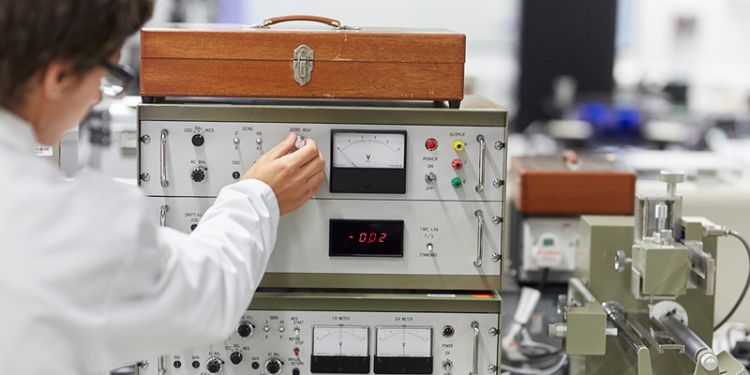Communication and Experience Design

In the Communication and Experience Design research group we focus on the quality of user experience when designing products, processes and services. This involves designing with users and/or measuring the user experience.
Staff specialising in co-design work within varied community settings, both internationally and locally to better understand the specific design problems experienced by people. By designing with people rather just for people we produce solutions together that respect the needs of the end users at an authentic level. This method enables rich insights that steer key design decisions. We also teach and supervise co-design methods at both MA and PhD level.
In order to measure user experience, the School has invested heavily in eye‐tracking, EEG (electroencephalography), and rapid‐capture camera systems that are being used to understand how users interact with the world and how consumers make purchase decisions.
We also have a lighting laboratory, which has the capability to illuminate an environment with spectrally designed lighting; this can be used to explore the effect of colour and light on sleep, emotion, user response and wellbeing.
User Design is a multi-disciplinary research area that encompasses many other academic disciplines including psychology, cognitive science, architecture and product design. We bring together academics from various disciplines who work together with industrial partners to deliver design solutions that are both culturally relevant and impactful. Through our integrated approach we can both better understand and better design user experiences.
Projects
Externally funded projects by staff in this research group are:
- Information and instructional design principles to enhance accessibility and inclusivity of course material on Blackboard VLE (Professor Maria Lonsdale)
- The impact of information design on recovery after bowel surgery. How can the design of patient information resources lead to improved comprehension and decreased anxiety? (Professor Maria Lonsdale)
- Cyber security communication campaigns. Identify how information and instructional design can increase the quality of cyber hygiene amongst the public (Professor Maria Lonsdale)
- Downsizing: using environmental prompts to understand healthy portion control and appropriate food servings in children, adolescents and caregivers (Dr Tang Tang)
- Handling and communicating intelligence information (Professor Maria Lonsdale)
- Participatory tools for human development with the youth (Dr Tang Tang)
- 'Lifting the Lid on Bacteria': Designing ambient communications to improve hygiene in primary school toilets (Dr Catherine Stones)
- The impact of information design on the quality of bowel preparation for colonoscopy screening (Professor Maria Lonsdale)
- Trials Engagement in Children and Adolescents (TRECA) (Dr Catherine Stones)
- Acting on the Margins: Arts as Social Sculpture (Dr Tang Tang and Dr Paul Wilson)
Members
Staff involved in the Experience Design research group are:
- Tang Tang (Research Group Leader)
- Francisco Oliveira de Queiroz
- Maria Lonsdale
- Edel Moore
- Paul Wilson
- Steve Westland
- Louise Wilson
- Hye-Won Lim
- Hosam Al-Samarraie
- Rui Leitao
- Qingxin Peng
- Matthew Lickiss
- Penar Yelmi
- Dian Li
- Catherine Stones
- Rafiq Elmansy
- Yuchan Zhang
- Jeanne-Louise Moys
- Elif Sener
- Qais Ahmad
- Natalia Sergeeva
- Peihua Lai (Postgraduate researcher)
- Dan Lang (Postgraduate researcher)
- Dema Mirdad (Postgraduate researcher)
- Guanyu Li (PHD student)
- Ruiqi Chu (PHD student)
- Emond Salter (PHD student)
- Ken Chen (PHD student)
- Eshrage Aljehani (PHD student)
- Jingpeng Xu (PHD student)
- Ezgi Oguz (PHD student)
- Adela Glyn-Davies (PHD student)
- Dan Yang (PHD student)
- Hanaa Felemban (PHD student)
- Qian Zhang (PHD student)
- Yunlu Liu (PHD student)
- Yunhua Ye (PHD student)
- Eddie Bowes (PHD student)
- Wenshan Shi (PHD student)
- Shuo Feng (PHD student)

